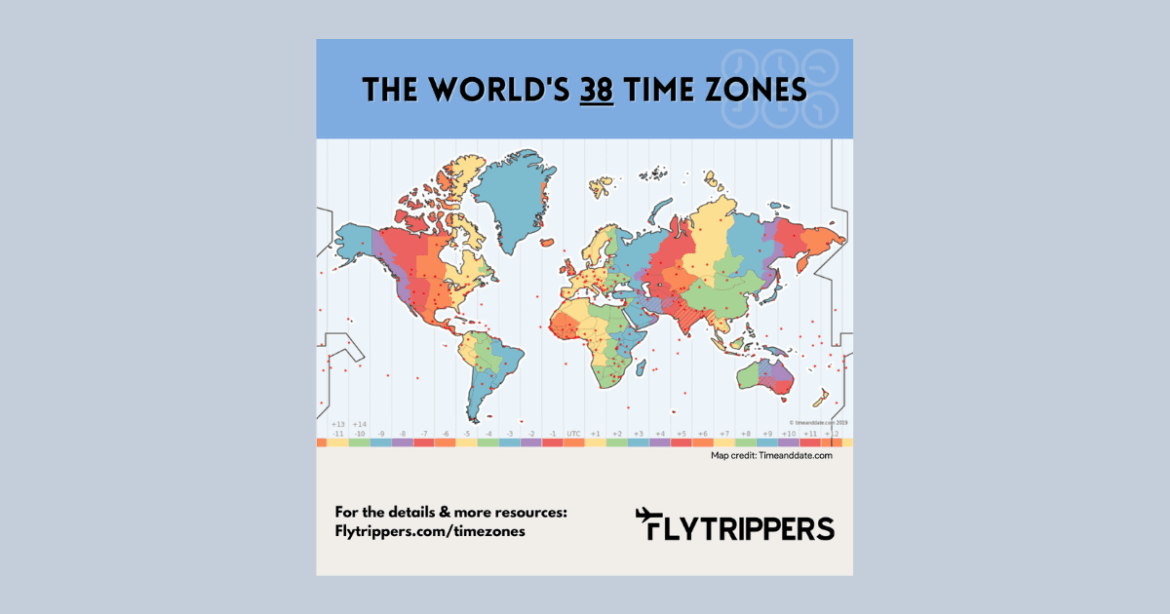In the intricate tapestry of our earthly existence, time serves as a constant companion, an unseen thread weaving together diverse cultures and communities. Yet, amid our shared journey, a fundamental question arises: How many time zones are there in the world? While the answer might seem straightforward, it opens a broader discussion about the nature of time itself, particularly from a Christian perspective. Could our perception of time influence our spirituality, and how might time zones reflect the complexity of God’s creation?
At first glance, the world is divided into twenty-four primary time zones, each roughly corresponding to a longitudinal degree of 15. However, the reality is infinitely more complex. Political boundaries, geographic irregularities, and, notably, individual nation interests lead to variations that mean there are actually around 38 different time zones worldwide. For instance, certain regions adopt half-hour or even quarter-hour deviations from the standard hourly increments. Such discrepancies raise the playful question: if we struggle to align our clocks, how do we expect to synchronize our spirits?
In Genesis, we are introduced to the concept of time as God orders the cosmos: “And there was evening, and there was morning, the first day” (Genesis 1:5). This divine ordinance of time not only establishes a rhythmic pattern for creation but also embodies the notion of purposeful progression. Each day marks a distinct phase, encouraging humanity to embrace the concept of beginnings and endings. A world divided into time zones illustrates the diversity of this divine order. Each hour heralds a new dawn for different corners of the globe, reminding us that God’s creations flourish in specific contexts and under unique conditions.
Consider the idea of the “sabbath” as an intrinsic element of time management. God’s instruction to rest on the seventh day signifies a divine acknowledgment of the necessity for balance, not only in our spiritual lives but also in our temporal experiences. Every time zone may find its own sabbath rhythms influenced by local customs and traditions, creating a mosaic of observance that speaks to the unique relationship each culture has with sacred time. Imagine a Sunday service in the bustling heart of New York City while simultaneously, somewhere across the globe, another congregation worships at dawn in Sydney. Each community, though separated by thousands of miles and a slew of time zones, is united in their praise, showcasing God’s omnipresence across temporal boundaries.
However, let us introduce a potential challenge: the “globalization of time.” In an age where technology obliterates distances, our understanding of time zones can become muddled. Virtual communication creates a phenomenon where individuals across different time zones interact as if time were linear and uniform. This brings forth moral and philosophical inquiries within a Christian context—how do we maintain our spiritual integrity when our earthly clocks fail to correspond? The interruptions issued by time zone differences prompt us to consider the timeless nature of God, who exists beyond the confines of our human measurement.
Furthermore, the paradox of time zones reflects on our experience of waiting, a common theme throughout biblical narratives. Waiting is often portrayed as a state of grace. Consider the story of Abraham, who waited decades for the fulfillment of God’s promise; the timing, to him, must have felt profoundly disjointed. Yet, God operates on a different temporal plane. As believers, recognizing the interplay between human time and divine time can enhance our faith. Time zones accentuate this truth—each hour passing around the globe is an invitation to inhabit a divine rhythm that transcends mere seconds and minutes.
Moreover, time zones remind us of the necessity to enquire about the significance of our own encounters with time. For many Christians, the church calendar serves as a guiding framework, offering a sacred tempo. Liturgical seasons ebb and flow much like the tides, reminding adherents of cyclical themes inherent in spirituality: hope, waiting, lamentation, joy, and renewal. Each of these seasons invites reflection, prompting believers to acknowledge the communal aspect of time—how it intertwines with our faith journey. As we progress through Advent, Lent, and Easter across assorted time zones, the collective celebrations resonate harmoniously among believers worldwide.
Furthermore, the existence of time zones shines a spotlight on our responsibility as stewards of God’s creations. Environmental stewardship requires an awareness of local times for planting, harvesting, and engaging with creation. As individuals distributed across the globe, our schedules must also align, collaborating towards the common goal of ecological preservation. The notion of time zones becomes a reminder that our actions in one part of the world can ripple outward, emphasizing the interconnectedness of our responsibilities to care for the Earth.
In conclusion, when we ponder the question of how many time zones exist in our global landscape, we unearth a rich tapestry woven with divinely inspired purpose, individual and communal experiences, and reflections on our engagement with spirituality. The complexity of our world’s temporal landscape offers an avenue for contemplation of God’s omnipresence and the collective narrative of humanity. Ultimately, while we navigate the intricacies of clocks and calendars, we are called to live in the present, honoring God’s plan that transcends the boundaries of time, inviting us into a deeper relationship with the cosmos and each other.



